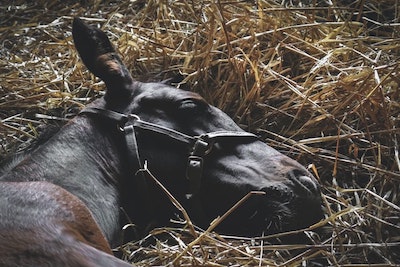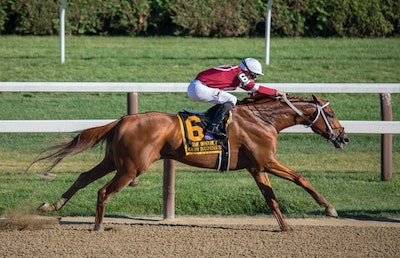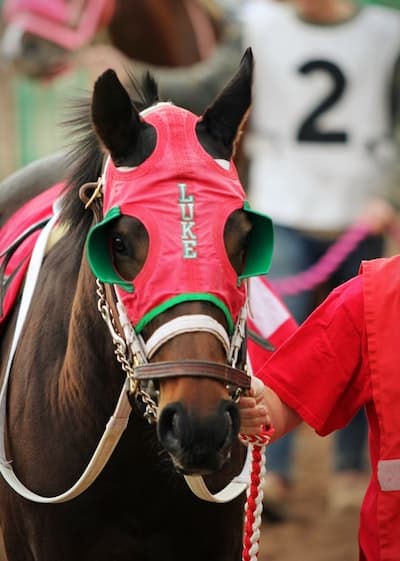Racing horses is an exciting sport and has had a significant impact on the industry. Statistics reveal that horseracing is the second most popular sport in many countries around the world
after football in terms of spectatorship and the fact that the horses are trained their entire life to participate in equestrian sports and this has played a very significant role in the industry.
It’s fair to say that sport is an excellent form of entertainment and in terms of horse racing, the outcome of events is very uncertain, and this brings pure excitement and drives for spectators throughout events.
Racing horses also provides riders and the horse with the momentum and adrenaline to succeed and perform well, however, horses can’t race all their entire lives. Instead, they are retired at some point and can go on to do different activities, such as a second career in another athletic field like show jumping or as a pleasure horse.

This article highlights the next steps for a retired racehorse.
When Do Racehorses Head For Retirement?
Horses can leave the racing industry at any stage of their life and this depends on a lot of factors such as success levels and injuries. The majority of racehorses will have a racing career of only 2-3 years, yet their life expectancy is 25-30 years. They can leave as foals which are known as ‘wastage’.
Horses can also leave the industry because of training difficulties, or just when they get too old to rave and are forced to retire. The primary reason for horses being withdrawn from racing is poor performance, with other reasons including illness, injury, or behavioural problems as explained.
A survey of Thoroughbred and Standardbred trainers in the 2002 – 03 racing year, funded by the RSPCA, found that the main reason for Thoroughbreds and Standardbreds leaving racing was a poor performance (36%, 35%) followed by illness or injury (31%, 27%), breeding (9%, 10%) and unsuitable temperament (6%, 6%).
Help from New Vocations
What happens to a racehorse after they retire isn’t a topic that’s widely discussed as the main focus is on the live event taking place and how the horses perform. Saying this, there is an expectation from society to provide retired racehorses with the care they need.
British racing, for example, invests $900,000 into programs that help to rehome and retrain former racehorses. The charity they formed themselves to do it called ‘Retraining for Racehorses’ and in 2018 there were 13,000 racehorses registered to this charity.

The Racehorse Owners Association also increase the prize money to help contribute some funding for rehoming and retraining the retired horses. Some horses who have been retired from racing are shifted over to other sports, such as dressage or showjumping. Many horses, however, are left unwanted.
Organizations such as ‘New Vocations’, the largest racehorse adoption program in the country, often helps facilitate these transitions. The organization focuses on helping unwanted, retired racehorses find their happily ever after-retraining and adopting out horses to people who intend to keep them for the remainder of their days.
Statistics reveal that New Vocations has helped place more than 6000 retired racehorses into qualified homes.
In terms of ‘rescue and safe recruitment’, there are many organizations across the country that dedicate themselves to rescuing and adopting out racehorses. It is ideal to retrain horses as they have been bought up to participate in equestrian sports. As stated before, older horses have graced onto the big stage in various festivals and tournaments and have experience.
Older horses are healthy, sound, and energetic enough to be ridden into their old age most of the time. It’s best to never turn down an old horse and this is a common mistake owner tends to make.
All racehorses deserve the chance at a happy retirement but, where a retired racehorse ends up depends on many things, including their success on the track and the considerations of their owners.
Breeding Farms
Retired female Thoroughbreds may have a second career on breeding farms, as can Very successful un-castrated male Thoroughbreds. However, the horses sent to breeding farms are only high premium and top-tier Thoroughbreds, because breeders want to pass on their desirable genetics to their offspring.
What Else Happens To Horses After Retirement?
Well, let’s focus more on the industry. Horse racing is big business. It is presented as a ‘rich man’s sport’ for a reason and the environment is different compared with other sporting events like football. The majority of racehorses will have a racing career of only 2 – 3 years, yet their life expectancy is 25 – 30 years.

All racehorses will eventually cease racing and there is a high level of public expectancy that these horses will be appropriately cared for in their post-racing life, not least because they have been bred and used for sport and profit in a multi-billion-dollar industry.
A survey of Thoroughbred and Standardbred trainers in the 2002-03 racing year, funded by the RSPCA, found that for Thoroughbred horses exiting racing completely, 19% were rehomed to other equestrian pursuits, 18% for breeding and 6% were sent for slaughter. For Standardbreds, 9% were rehomed, 16% went to breeding, and 17% were sent for slaughter.
In conclusion, all racehorses will eventually cease racing. Many horses are retrained as racehorses have been bought up to participate in races therefore, they must not be ignored and be appropriately cared for. Many horses are rescued and adopted as they may be very old and not fit enough to partake in events and tournaments.
Regardless of any given situation, racehorses must not be ignored. There is a high level of public expectancy that these horses will be appropriately cared for in their post-racing life as they have been bred and used for sport and profit a multi-billion-dollar industry.
For horses to remain healthy and mature to participate in races, they must be appropriately cared for and not ignored as many horses require ‘post-racing support’ from organizations such as ‘New Vocations’ and place them into qualified homes and retrain them.
